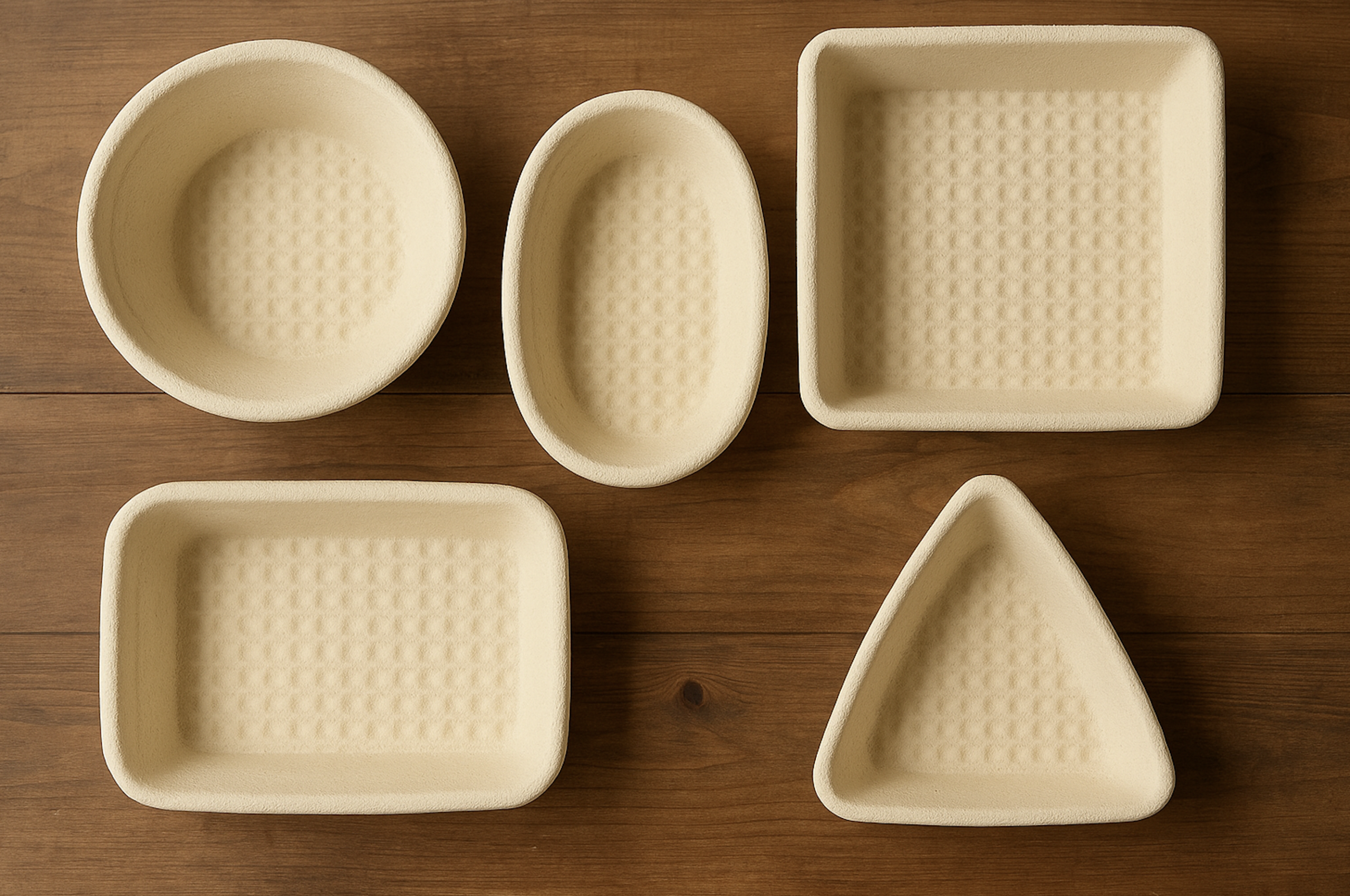British Columbia’s forestry and pulp sector has long been a cornerstone of the province’s economy—known globally for its renewable softwood fiber, technical innovation, and export leadership. But as the industry seeks to evolve, diversify, and respond to shifting environmental and market pressures, a surprising opportunity has emerged at the intersection of craft baking and fiber innovation: locally made wood pulp banneton bread proofing baskets for sourdough.
Also known as brotforms, these molded fiber baskets are essential tools in artisan baking. Used to support dough during its final fermentation, they help shape the loaf, regulate surface moisture, and produce the crust patterns that define traditional sourdough. Despite soaring demand in Canada—especially among home bakers, microbakeries, and culinary schools—almost every banneton sold here is imported from Europe or Asia.
This is more than a supply chain inefficiency. It’s a missed opportunity for British Columbia’s wood pulp industry to create a high-value, sustainable product from existing resources—one that serves a national market, supports rural jobs, and reflects Canadian values.
A Product Whose Time Has Come
A recent thought leadership piece by The Sourdough People makes the case clearly: Canada is perfectly positioned to produce wood pulp bannetons domestically. We already have the raw materials—long-fiber softwoods like spruce, pine, and fir—combined with modern pulp molding equipment, food-grade standards, and a growing consumer base eager to support local products.
This isn’t just a new product category. It’s a strategic expansion opportunity for pulp mills in British Columbia and beyond.
Why This Matters for British Columbia
British Columbia is home to many of the country’s most advanced pulp operations. Mills in places like Prince George, Castlegar, Port Alberni, and Nanaimo already produce high-quality fiber for compostable packaging, molded containers, and hygiene goods. The infrastructure exists. The skills exist. The demand exists.
What’s missing is only awareness—and action.
Making bannetons here would:
- Create skilled jobs in design, tooling, packaging, and distribution
- Strengthen local manufacturing and reduce reliance on imports
- Capture new tax revenue for the province through value-added production
- Reduce greenhouse gas emissions tied to international shipping
- Align with provincial and federal priorities around sustainability, circular economy development, and food system resilience
At the same time, it connects forestry to food in a tangible way—putting B.C. fiber directly into the hands of bakers across Canada.
A Cultural and Commercial Touchpoint
A bread basket may seem small, but it tells a big story. It connects the land to the loaf. It bridges industry and identity. It’s something you can hold, use, and share—carrying with it the values of sustainability, craftsmanship, and place.
Canadian-made bannetons can be branded, labeled in both official languages, and customized to reflect Indigenous, multicultural, and regional baking traditions. They’re practical, giftable, and rooted in the ethos of conscious consumerism.
This is more than manufacturing. It’s meaningful design for modern Canada.
A Call to British Columbians
If you work in the wood pulp industry in British Columbia—or know someone who does—this is a moment worth sharing. Whether you’re in operations, engineering, product development, or community leadership, this idea has legs.
Partnerships with design firms, mold makers, or local bakeries can unlock new prototypes quickly. Production can be piloted using existing molded fiber lines. The tooling costs are low, and the return on investment is potentially significant—especially given the growth in sourdough culture across the country.
Let’s not wait for another region or country to lead on this. British Columbia can—and should—be first.
With Thanks and an Invitation
We thank The Sourdough People for their original research and vision in outlining this opportunity. Their article makes a compelling case for reimagining a simple tool as a catalyst for industrial renewal, cultural expression, and environmental progress.
And to our readers: what do you love most about baking sourdough at home in Canada? Is it the connection to tradition? The satisfaction of slow food? The joy of sharing fresh bread with family?
Let us know—we’d love to feature your stories in an upcoming issue.



